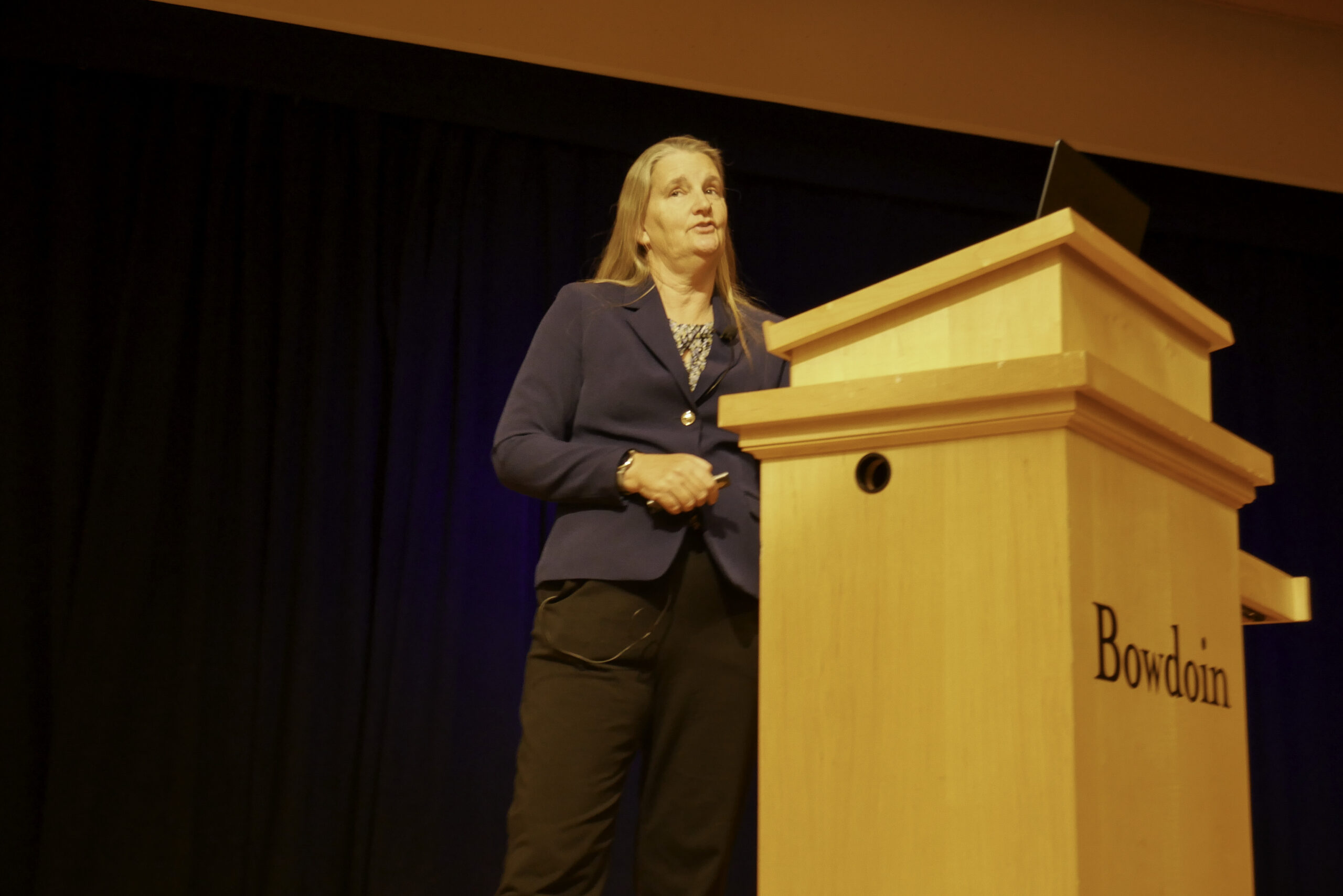Jean Twenge discusses technology as the root of generational differences
November 15, 2024
 Abigail Hebert
Abigail HebertOn Monday night, Jean Twenge, professor of psychology at San Diego State University, delivered a talk in Kresge Auditorium about the changes in psychological perspectives in different generational groups today.
Twenge’s research seeks answers to the changes in social and emotional trends in five different generational groups: the Silent Generation, Baby Boomers, Generation X, Millennials and Generation Z. Approaching these differences as a social psychologist, her work points to the rapid development of technology as the catalyst for growing division between older and younger generations in modern society.
“When you consider why it is so different to live now compared to 200 years ago, or 100 years ago, or 50 years ago or even 20 years ago,… it’s technology. That’s what seems to be at the root of so many generational differences,” Twenge said.
Twenge elaborated upon technological advances that go beyond the scope of computers, smartphones and social media. The development of more efficient transportation, for example, makes it quicker and safer for people to travel across countries. Advanced medical technology has dramatically impacted people’s livelihoods and lifespans. Life expectancy in the 21st century now pushes 80 years, whereas almost 100 years ago it did not even break 60 years.
These advances contribute to many modern-day social phenomena. Concepts such as individualism, where people are more focused on the self and less on others, and the “slow life strategy,” where children and young adults take longer to grow up and achieve independence, drive shifts in perspectives among the younger generations.
“At times and places when people live longer, when healthcare is better and when education takes longer to finish, parents tend to choose to have fewer children and nurture them more carefully.… That’s known as a slow life strategy, [and] it’s a pretty good description for how you raise kids now,” Twenge said.
Her research supports the idea that development has slowed at every stage from birth to old age over the past century, meaning people are now taking longer to hit major “adulting” milestones.
“If you look at marriage age, for example, the median age of first marriage [for women] has been growing pretty steadily since the 1970s—same thing for the age of having [their] first child,” Twenge said.
These social trends reflect the growth of individualism in people’s lives. Focusing more on the self, and less on social rules, has both positive and negative psychological implications, according to Twenge.
“Strong influence of individualism and the emphasis on positive self-use [can] happen in a culture…. [But] we also have seen a decline in trusting others and a decline in confidence in large institutions,” Twenge said.
Twenge continued the discussion by pointing out technology’s direct effects on modern behavior, focusing on its impact on the daily lifestyles of Generation Z.
“More and more teens started to say that they felt left out, lonely, couldn’t do anything right and that they didn’t enjoy life,” Twenge said.
Twenge encourages people from all generations to be aware of the detrimental effects of technology, namely blue light from screens and the excessive exposure to social media, on mental and emotional well-being. She suggests limiting the use of phones in K-12 schools to encourage more active social interactions and shutting off electronic devices an hour before bedtime to ensure better quality sleep as good ways to start limiting technology’s adverse effects.
Samuel Putnam, professor of social sciences and chair of the psychology department, observed similarities between Twenge’s research and his own experiences teaching young adults.
“I get this sense of anxiety, [and] I do see it sometimes in observing [the students’] social interactions [with each other],” Putnam said.
He expressed his fascination with Twenge’s research and hopes to understand how, from a developmental psychology perspective, exposure to technology influences young adults’ emotional landscape.
“I’m a developmental psychologist, so it’s all about how your early environment shapes the person you become,… [and] seeing how these social influences shaped each generation was fascinating,” Putnam said.
Sarah Seo ’27, who also attended the event, appreciated Twenge’s emphasis on the role of technology in shaping generations.
“We always hear about how [much] technology divides a generation, but we never really get into [details]. So, I think it was cool to hear about it,” Seo said.

Comments
Before submitting a comment, please review our comment policy. Some key points from the policy: